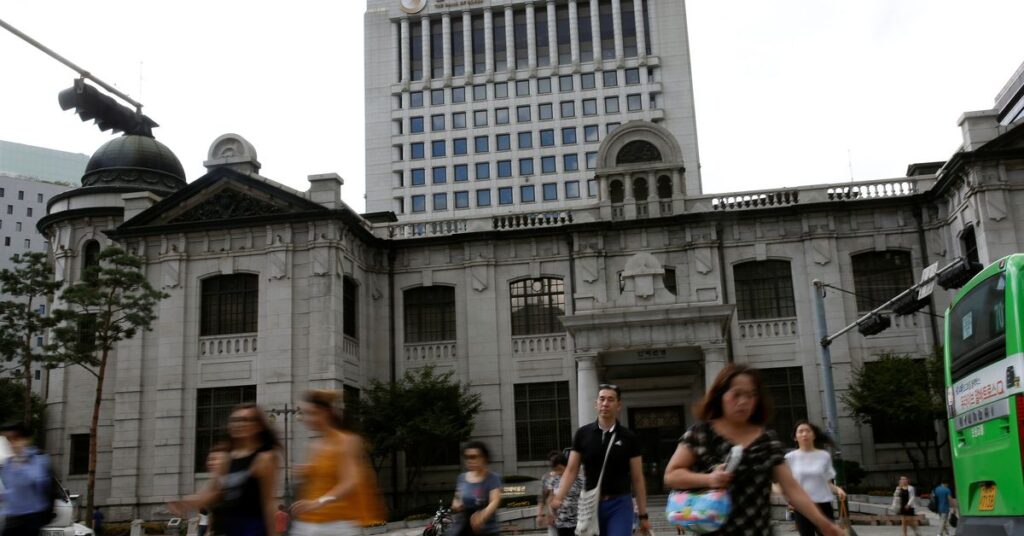SEOUL, July 17 (Reuters) – South Korea’s central bank said on Monday there was a need to manage financial stability in addition to price risks as the country’s high household debts have started to climb.
“In terms of monetary policy, it should consider financial stability more actively to prevent excessive leveraging or risky asset investments when monetary policy is loose,” the Bank of Korea (BOK) said in a report.
“There is a need to discuss introducing a ‘prudential monetary policy’ with higher consideration on financial stability, in addition to price stability,” the central bank said.
South Korea’s household debt surged to a record high in June, when it increased for a third month and by the biggest amount in 21 months, as demand grew for mortgage loans, data showed last week.
Total household debt stood at 105.0% of the country’s gross domestic product in the fourth quarter of 2022, the third highest after Switzerland and Australia, among 43 major countries complied by the Bank for International Settlements.
The central bank said in the report there was limited financial stability risk from household debt, given the low loan-to-value ratio and the high percentage of high-income earners, but it flagged negative long-term implications on growth and inequality.
Policymakers need to be more cautious with their communications so that households do not underestimate the risks of interest rate changes, the BOK added.
The BOK has kept monetary policy unchanged since its last interest rate hike in January and its tightening campaign, which began in August 2021, is widely expected to be over. However, at its meeting last Thursday, its governor said most board members kept the door open for further rate hikes.
Reporting by Jihoon Lee; Editing by Jacqueline Wong
: .


